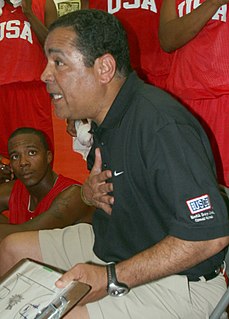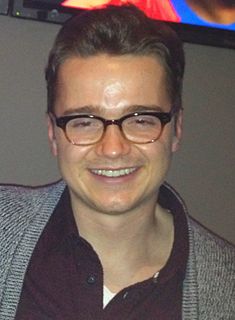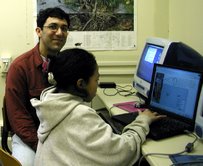A Quote by John Landgraf
We also have a piece about the Mayflower, but it's just a very different, very gritty, very character-driven version of why those people were on that boat and what the experience was like for them, emotionally, physically and spiritually, and also the Native Americans and what the state of Native American society was at that time.
Related Quotes
You see the one thing I've always maintained is that I'm an American Indian. I'm not a Native American. I'm not politically correct. Everyone who's born in the Western Hemisphere is a Native American. We are all Native Americans. And if you notice, I put American before my ethnicity. I'm not a hyphenated African-American or Irish-American or Jewish-American or Mexican-American.
It wasn't like this happy-go-lucky experience, shooting Norman movie. It was something I kind of had to, sort of dedicate a certain level of focus and energy to kind of just stay in this headspace that would allow me to access - because it's also a very emotional movie at times. This was the first time I ever played a real character, a fully fleshed out, dimensionalized, multi-faceted character, as opposed to a part. There's not very much opportunity for somebody of my age and my look, so for a character-driven piece like this to come along is a rare thing.
I have four relatively small children, and around fourth grade, they start doing big projects on Native Americas: everything is Native Americans in elementary school. Do you know how many Native American dresses I've sewn, on and on; it's a full yearlong study. And then never again. As journalists, we never even cover Native Americans.
I started collecting aerial photographs of Native American and South Pacific architecture; only the African ones were fractal. And if you think about it, all these different societies have different geometric design themes that they use. So Native Americans use a combination of circular symmetry and fourfold symmetry.
Quakers are known for wanting to give back. Ban the bomb and the civil rights movement and the native American struggle for justice - those things were very, very front-burner in my childhood, as were the ideas of working for peace and if you have more than you need, then you share it with people who don't.
There's no doubt that when it comes to our treatment of Native Americans as well as other persons of color in this country, we've got some very sad and difficult things to account for. I personally would want to see our tragic history, or the tragic elements of our history, acknowledged. I consistently believe that when it comes to whether it's Native Americans or African-American issues or reparations, the most important thing for the U.S. government to do is not just offer words, but offer deeds.
I am extremely conscious of my tribalism. And when you talk about tribalism, you talk about living in a black and white world. I mean, Native American tribalism sovereignty, even the political fight for sovereignty and cultural sovereignty is a very us versus them. And I think a lot of people in this country, especially European Americans and those descended from Europeans don't see themselves as tribal.
































